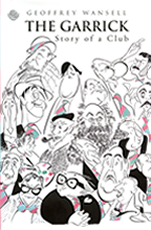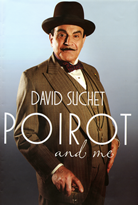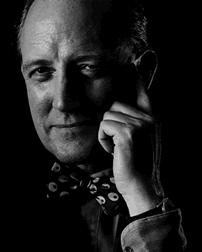
By Geoffrey Wansell:
Daily Mail, 19th November 2009
The amazing story of Bobbie, the bravest dog of war, as told in a British soldier's diary of a bloody battle in Afghanistan 130 years ago.
Surrounded by thousands of bloodthirsty tribesman in the dust and heat of the Afghan plain, the handful of British men desperately defended their regimental colours.
They were all that were left - along with their adopted dog Bobbie. The rest of the 66th Berkshire Regiment of Foot had been cut to ribbons.
Some of the soldiers fired at their attackers who shrieked and swirled about them brandishing scimitars and shotguns.
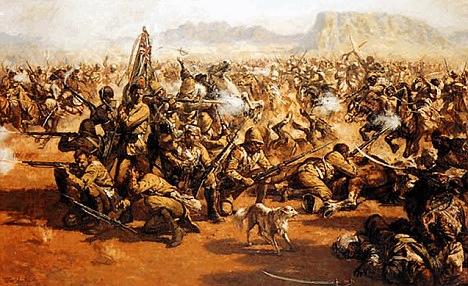
The 66th Foot sell their lives dearly at their last stand in the Battle of Malwand, aided by the deiant Bobbie the dog.
Others held their bayonets steady so they could spear and kill one last enemy before they fell. One man clung defiantly to the flag.
The dog attacked all comers fearlessly, but Bobbie's furious barks were soon lost in the deafening din of battle.
Within minutes, these brave men - two officers and nine soldiers - lay butchered like their colleagues. Bobbie, later to be feted as a war hero, was the sole survivor.
The Battle of Maiwand was one of the bloodiest defeats in British military history, a battle which saw no fewer than 969 soldiers lose their lives in a single day - and a British Government mired in ignominy.
A battle, too, which serves as a devastating warning to Britain today, with its echoes of what is happening to our troops in Helmand province.
Next month the letters, medals and sketches of one of the few survivors of Maiwand - a battle fought west of Kandahar on July 27, 1880, at the height of Britain's imperial power - go on sale at auction in Sherborne, Dorset.
The memorabilia belonged to Captain John Slade of the Royal Horse Artillery, a man who took his place in Army folklore as 'Johnnie of Maiwand' for his bravery during the ferocious day-long fight and the subsequent agonising retreat.
He saved the lives of hundreds of men when he took control of his artillery battery after his commanding officer had been wounded.
Slade's sketches depict the astonishing hand-to-hand fighting that took place that day - when just 2,500 British and Indian soldiers were surrounded by no fewer than 25,000 Afghan fighters.
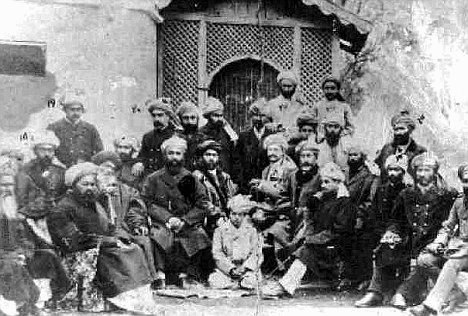
Victory Day at Kandahar following the Battle of Maiwand, which saw 2,500 British and Indian soldiers up against 25,000 Afghan fighters
The battle saw the Grenadier Guards lose 366 men, almost two-thirds of their force, while the 66th Berkshire Regiment of Foot lost ten officers and 276 men to attacking Afghan tribesman.
As Captain Slade recounts in one of the letters to be auctioned on December 15: 'I never saw such a sight in my life - too awful to describe - I worked hard to save all the wounded men and was rear guard with two guns the whole way.'
In British military history the Battle of Maiwand is as iconic as General George Custer's last stand against the Cheyenne Indians is for Americans.
|
To see how the battle turned into such a savage bloodbath, we need to travel back to the plains of Afghanistan that July in 1880 - just two years after Britain had invaded the country as part of what was later to become the Second Anglo-Afghan war.
By the summer of 1880 the bulk of the invading British Army in Afghanistan had marched north to Kabul, leaving only a small force in the southern city of Kandahar, when word reached the city
that Ayub Khan, the younger brother of the deposed Ameer of Afghanistan, was on the march to raise troops from among local tribesman and passing to the north of Kandahar.
Brigadier George Burrows was immediately dispatched to stop Khan in his tracks - with his force of 2,500 British and Indian troops, supported by nearly 3,000 native Afghan tribesmen.
Things did not go well from the start. Within days many of the Afghan tribesmen under Burrows's command had mutinied, leaving to join Ayub Khan's force. But Burrows soldiered on.
Late on July 26 he received intelligence that Ayub's force was moving through the Malmund Pass and would reach the village of Maiwand the next day.
Burrows might have had a chance if he had marched immediately. But the brigade took so long to get all its equipment together that it left in the early hours of the next day.
The delay was to prove a tragic error. It gave Ayub Khan time to put his far larger army into position, and to get his artillery ready.
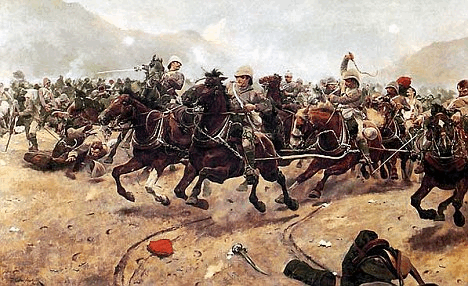
This sketch shows the Royal Horse Artillery fleeing attack during the Battle of Maiwand
The first phase of the battle comprised an artillery duel with the Afghans completely out-shooting the British, having a greater number of more modern and heavier guns.
Burrows had never commanded in battle before and had no experience of commanding a mixed force of infantry, cavalry and guns. Fatally, he allowed his force to advance into an exposed position.
He'd also chosen to fight on a dusty plain at the height of the Afghan summer with men unused to the heat and without sufficient food. Many of his soldiers had had nothing to eat on the day of the battle, and - even worse - their supply of water ran out early on.
The effect was catastrophic, for not only was there no water for soldiers fighting in 90F temperatures, but there was also no way for Burrows to arrange for the rescue of the wounded men. Many died of their wounds on the field of battle.
In desperation Burrows turned to the infantry. But by now he was surrounded on three sides, and Ayub Khan directed his artillery at the Grenadiers at point-blank range, causing them severe casualties. Meanwhile the Afghan cavalry and infantry attacked the 66th Foot.
The British forces' bravery was extraordinary. Sergeant Mullane of the Royal Horse Artillery, for example, earned the Victoria Cross for charging recklessly into the tribesmen who were overwhelming his guns, and rescuing a wounded gunner.
Part of Ayub Khan's force was held at bay by the Grenadiers, who fought until their ammunition was exhausted, before they too were overwhelmed and killed.
Crushingly defeated on the field, Burrows soon ordered the retreat, telling some infantry to remain behind to hold off and slow down the rampaging Afghan forces.
He began the 45-mile march back to Khandahar, giving up his horse to a wounded officer on the way - and was, in turn, offered the horse of a passing cavalry warrant officer who could not bear to see his Brigadier retreating on foot.
In the meantime, he was unaware that what was left of his infantry was fighting to the death behind him.The escaping British and Indian troops streamed up the road towards Kandahar, pursued by the Afghan cavalry, who were held off by the Royal Horse Artillery battery now commanded by 37-year-old Captain John Slade.
Inevitably, many of the retreating column, particularly the wounded, were picked off and killed by the Afghan tribesmen pursuing them.
It was probably only the greed of the Afghan tribesmen that prevented Burrows's entire force from being wiped out. They were distracted by the opportunity to loot the British and Indian baggage.
'The retreat through the whole night was fearful,' Captain Slade wrote. 'We had no water for 32 miles. Men laid down and died of thirst.'
We were fired at all night,' he went on, 'and all the following morning we had to run the gauntlet through the villages.'
back to top |
One of Slade's men, Gunner Cullen, was awarded the Victoria Cross for his conduct during the retreat, while eight other soldiers were awarded the Distinguished Conduct Medal.
Not every British soldier was quite so heroic, however. During the retreat a number became incapably drunk after raiding the officers' stores and were abandoned to be slaughtered by the pursuing Afghans.
The survivors spent 34 hours staggering back towards Kandahar under fire, having lost 21 officers and 948 soldiers killed, and with another eight officers and 169 men wounded. More than 2,000 horses were also killed. It's been estimated that 3,000 Afghans lost their lives in the battle.
The defeat at Maiwand caused a sensation in Britain and Europe. Two senior officers from Burrows's force were even tried by court martial as a result, but both were acquitted. In contrast Captain Slade was made a member of the Order of the Bath.
No one could disguise the fact that the defeat was a terrible blow to the British Government, which soon retaliated.
Khan managed to shut the British up in Kandahar for the next month by surrounding the city. But General Frederick Roberts was dispatched on a 314-mile march from Kabul to Kandahar in August to relieve them.
The resulting Battle of Kandahar on September 1 brought a decisive victory for the British and an end to the second Anglo-Afghan war.
Yet the reverberations of defeat at Maiwand were to be felt in Britain for the next two decades. In 1886 a great cast-iron lion was erected in Forbury Park, Reading, the county town of Berkshire, with the names of the fallen men of the 66th Foot engraved around its base, and it remains there today.
Meanwhile Queen Victoria awarded medals to the survivors, including the 66th's dog Bobbie, who was presented with an Afghan campaign medal by the Queen at Osborne House on the Isle of Wight.
What is also not in doubt is that the memory of the battle had a profound effect on the Victorian imagination.
The fictional friend and chronicler of Sherlock Holmes, Dr Watson, was based on the real-life figure of the 66th's Medical Officer, Surgeon Major A.F. Preston, who was wounded at Maiwand.
Rudyard Kipling made the battle the subject of one of his Barrack Room Ballads, That Day, which concludes with the devastating lines:
But I wish I was dead 'fore I done what I did, Or seen what I seed that day!
For his part Captain Slade married the daughter of a major general two years later, and became a major general and British Commander-in-Chief in Egypt in 1897 before eventually retiring from the Army.
Awarded a knighthood in 1907, he went on to become Gentleman Usher to both King Edward VII and King George V. He died in the Isle of Wight in 1913 at the age of 71.
Slade's medals, letters and sketches from Maiwand have remained in his family since his death, and are now being offered for auction for the first time.
The memories they will evoke might just remind the world of the philosopher Santayana's famous saying that 'those who fail to study history are doomed to repeat it'.
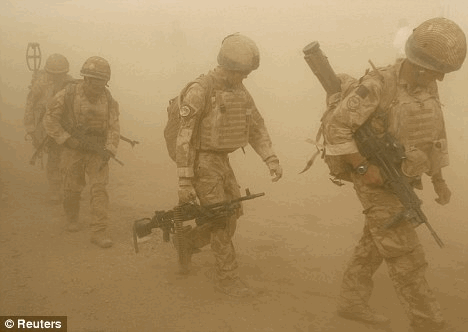
The Battle of Maiwand provides an insight into the horrors suffered by troops in Afghanistan today
For the battle also inspired the Afghans, one of whom, a Brigadier in Ayub Khan's army, was to remark shortly afterwards: 'In any case, the threat of an armed peasantry in Afghanistan is now so well appreciated abroad that not even the British will ever dare invade us again!'
|


![]()
